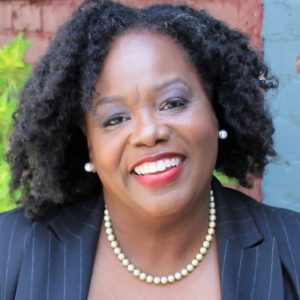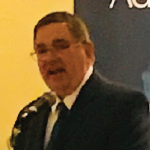Policymakers working in U.S. state capitols are tasked with advancing legislation that supports their constituents and solves the challenges they face. One way state legislators learn about these challenges is through advocacy efforts, such as when rheumatologists contact their representatives to raise awareness about such issues as drug pricing or prior authorization.

Rep. Kim Schofield
Rep. Kim Schofield (D-Ga.) is one such policymaker, whose journey into politics began 20 years ago when she was diagnosed with lupus. Shortly after her diagnosis, she started a lupus support group and gradually shifted her energy toward advocacy efforts at the capitol, which led her to run for office in 2017. Rep. Schofield spoke with The Rheumatologist about advocacy, how it helps and what types of legislation can help rheumatologists, rheumatology health professionals and their patients.
Q: Generally speaking, what is advocacy?
Advocacy is about relationship building, reaching the people that want to be your ally. I like to say, as a state representative, I “re-present” your issue. When people bring me an issue they’re passionate about, I re-present that issue to a larger body of policymakers to get them on board so we can then make that issue our own and produce change.
Q: What efforts do you see as important for rheumatology patients and providers?
One of the things I’ve been actively working on is to make sure we are recruiting and retaining rheumatologists [who] can serve in rural and underserved communities. That helps in a number of ways, but in particular, with the baby boomers getting older, we’re going to need more rheumatologists. Additionally, we have been working with the Georgia Council on Lupus Education and Awareness to educate all school nurses across the state to recognize the signs and symptoms of lupus and be able to refer students to pediatric rheumatologists. We also developed pediatric-to-adulthood guidance to help young adults with lupus transition to college or into the workforce.
Q: When you’re talking about improving access in rural communities and getting providers to those places, how does legislation do that?
We have to get creative, and policymakers can help drive the funding and the resources to put new innovations in place. For example, telemedicine opens up doors for people that are in underserved communities to have access to physicians. So expanding broadband internet in the rural community allows these communities to engage by making healthcare attainable and affordable.
Q: With regard to access disparities, what are some state policy changes that could help begin to correct this situation?
We have to not just have a dialogue, but we have to really be committed and intentional about putting measures in place to change health disparities—for example, increasing access by opening more rural hospitals, ensuring access to specialists and capping medication prices. The system was designed for one specific group of people, but now we have to make it inclusive, and we have to make change in a way that is lasting and sustainable.
Q: What are some of the most effective ways that patients and providers can advocate?
Do contact your legislator, whether you’re in politics or not. Providers can also be proactive by encouraging patients to advocate for themselves. Don’t get discouraged. This is a long process. And don’t give up. If you don’t hear back from your legislator, find another way to communicate with them. You can call the offices, send email or reach out through social media. Do be prepared to tell us what you want. If you don’t know specifically what your need is, then work with advocacy groups. And finally, do know your policymaker, what they stand for and their platform.
Q: When legislators hear from providers and patients through advocacy efforts, what effect does it have?
Policymakers are people too. The touch point is finding that connection, sharing your story. If we make it human, then people have a capacity to understand and have empathy. When I work with the rheumatologists that come to the capitol, it gives me perspective on their daily challenges, the resources that they need and the barriers that they face.
Q: Given the uncertainty today with the election and the pandemic, what do you see as being the biggest challenges and opportunities for health policy in Georgia and nationally in 2021?
COVID-19 exposed a lot of gaps in healthcare—for example, the number of people who are uninsured—and now we realize that the whole healthcare system needs to be reformed. We’ve got to look at making systemic changes, not just quick fixes, to really build a strong healthcare system that can and will work for most if not all people.
Kimberly J. Retzlaff is a freelance medical journalist based in Denver.


